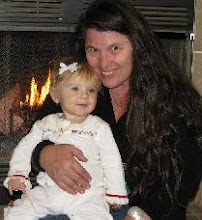
• How has your network changed the way you learn?
Information is abundant and fragmented. For curriculum development, I spend most of my time filtering and creating critical thinking and problem-based learning activities from the information for the students to practice.
• Which digital tools best facilitate learning for you?
1) For curriculum and teacher development, I access the internet for science sites and educator sharing sites, professional development videotaped workshops in Annenberg Media.
2) For students, I access the internet for science tutorials, videocasts, YouTube and TeacherTube for science demonstrations and hands-on lab ideas.
3) For home school students, we use Breeze for online “live” teaching sessions.
4) For teacher collaboration, I use Skype, Conference Calls, Breeze, as well as monthly live meetings.
5) For the highly intense Robotics team 6-week build, we communicate through emails, blogs, and the Robokong website when we are not together. We also post our team videos on YouTube for other teams to view. We access a blog site called Chief Delphi where several teams come together with discussions and ideas.
6) Google docs are used frequently by spontaneous teams at our school.
• How do you learn new knowledge when you have questions?
I use the internet, Walden library database, email colleagues, or post blogs for information gathering.

Marlene,
ReplyDeleteYears ago there was a commercial when the NY telephone company existed: “we're all connected: NY telephone…;” we can adjust the tune to: “we all connected: social networks…” Through connectivism we are all connected. As I was looking through your network connection chart and when I was working on mine, I realized how we are all interconnected and learn from each other. The web has opened many resources and with Google: scholar, books, YouTube, all the social networks have became a vast source of knowledge.
It is easy to agree with Siemens statement on his blog:“when I externalize something, it’s information. When someone connects it in some manner, it becomes knowledge. Knowledge is essentially relatedness/connectedness.”
Siemens, G. (2010, January 19). elearnspace. Retrieved January 26, 2010, from : http://www.elearnspace.org/blog/
Orit